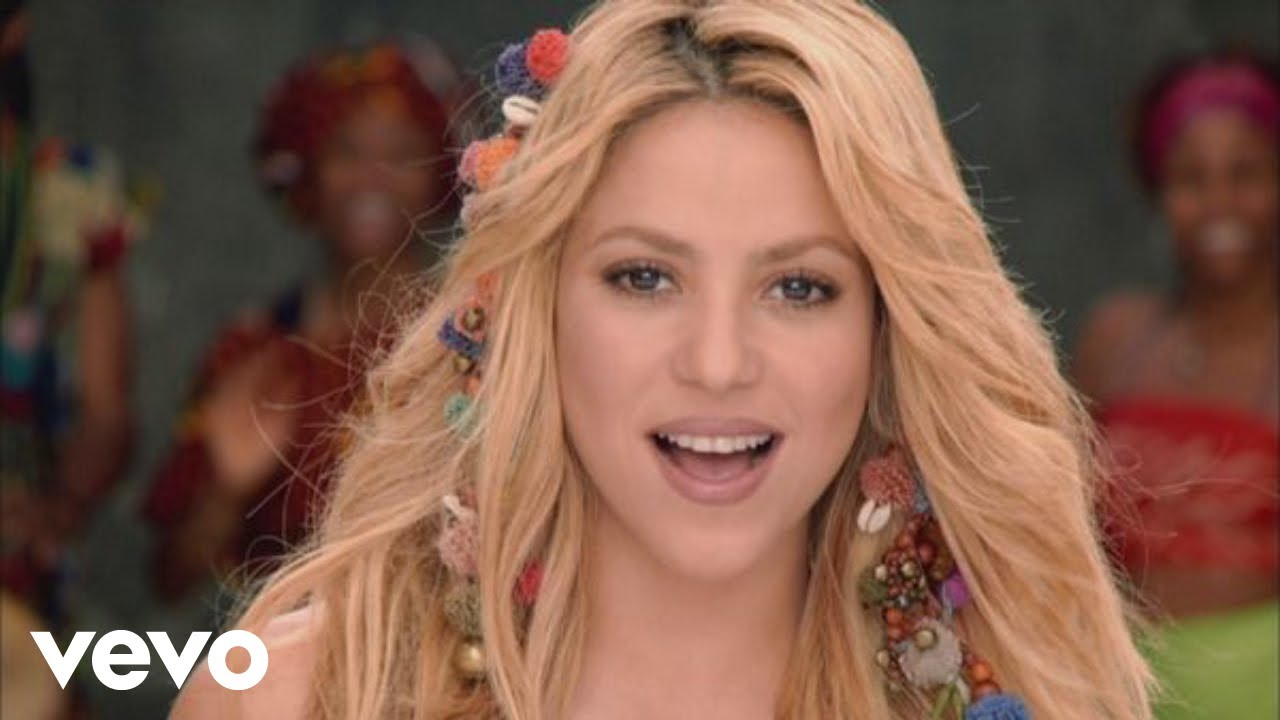In the realm of music, there exist timeless tunes that transcend borders, languages, and cultures. Among these, “Waka Waka (This Time for Africa)” stands as a testament to the unifying power of rhythm and melody. Originally performed by Colombian singer Shakira for the 2010 FIFA World Cup, this song quickly became a global sensation, captivating audiences worldwide with its infectious beat and uplifting message.
The story of “Waka Waka” is one of collaboration and celebration, reflecting the spirit of unity that sports events like the World Cup embody. Written by Shakira alongside a team of talented musicians including the South African group Freshlyground, the song blends elements of pop, African rhythms, and traditional Colombian influences to create a truly unique sound. Its lyrics, a mix of English and a Cameroonian dialect, speak of resilience, determination, and the universal desire for victory.
At its core, “Waka Waka” is more than just a catchy tune; it’s a symbol of hope and empowerment. Through its energetic melody and uplifting lyrics, the song encourages listeners to embrace their inner strength and pursue their dreams with passion and conviction. It embodies the spirit of the World Cup, where athletes from diverse backgrounds come together to compete on the world stage, inspiring millions with their dedication and perseverance.
One of the most striking aspects of “Waka Waka” is its ability to transcend cultural and linguistic barriers. Despite being primarily sung in English, the song’s infectious rhythm and catchy chorus resonate with people of all ages and backgrounds. Whether it’s played in the bustling streets of Rio de Janeiro or the remote villages of rural Africa, “Waka Waka” has a universal appeal that speaks to the shared humanity of its listeners.
The music video for “Waka Waka” further emphasizes its global reach, featuring vibrant visuals and energetic dance sequences that pay homage to the rich cultural tapestry of Africa. Shot on location in various African countries, the video showcases the continent’s natural beauty and diverse traditions, serving as a colorful backdrop to Shakira’s dynamic performance. By incorporating elements of African culture into both the song and its visual presentation, “Waka Waka” celebrates the continent’s rich heritage and promotes cross-cultural understanding and appreciation.
Beyond its cultural significance, “Waka Waka” has also made a tangible impact on communities around the world. As the official song of the 2010 FIFA World Cup, it helped to raise awareness and funds for various charitable initiatives, including the 1GOAL campaign, which aimed to provide education for children in Africa. Through its association with one of the world’s most-watched sporting events, “Waka Waka” became a rallying cry for social change, inspiring individuals and organizations to come together in support of a common cause.
The legacy of “Waka Waka” extends far beyond its initial release, continuing to resonate with audiences and inspire new generations of fans. Ten years after its debut, the song remains a staple of sports events, dance parties, and cultural celebrations around the world, its timeless message of unity and empowerment as relevant as ever. With over two billion views on YouTube and countless cover versions and remixes produced by artists from every corner of the globe, “Waka Waka” has firmly cemented its place in music history as a true classic.
As we reflect on the enduring legacy of “Waka Waka,” we are reminded of the power of music to unite, inspire, and uplift. In an increasingly divided world, songs like this serve as a reminder of our shared humanity and the importance of coming together to overcome challenges and pursue our dreams. Whether we’re singing along to its catchy chorus or dancing to its infectious beat, “Waka Waka” continues to bring joy and positivity to millions, proving that music truly has the power to change the world, one song at a time.
